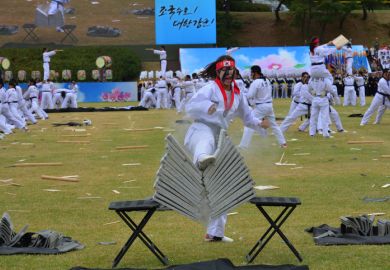Doctors are in crisis. The many medical "scandals" that have hit the headlines over the past year - Harold Shipman's murder trial, the inquiries into the Bristol Children's Heart Unit and organ retention at Alder Hey Hospital -have all taken their toll. There is a deep anxiety about the clinical competence of doctors, their communication skills, training and decision-making. Breaches of trust have fundamentally undermined feelings of respect for the medical profession. Yet very little has been written about the morale of the profession, and general practitioners in particular. This is what Linden West's book of 25 linked interviews with inner-London GPs brings into brilliant focus.
The words of the doctors leap out from the pages and highlight everything that is wrong with general practice. There is a startling honesty: an overwhelming sense of the inadequacy and futility that can haunt a doctor, and many talk about their own emotional despair and depression. "Medicine is a profession where it is safer to pretend that all is well, even when palpably it is not."
West was asked to evaluate the impact of a self-directed learning programme for GPs in inner London. The research was intended to encompass the nature of healing as well as of learning, the relationship between the personal and the professional, and the complex interplay of a doctor's identity with that of his or her patients within the constraints of an inner-city practice.
Many papers in the British Medical Journal over the years have pointed out the inequalities within healthcare services and in the mortality and morbidity of rich and poor. People in inner cities live shorter and unhealthier lives than elsewhere. The Royal College of General Practitioners' report on the inner city concluded that urban decay, social division and the crisis of public funding affect the health of doctors as well as patients. The Thatcherite assault on public provision and collective responsibility has had an enormous impact over the past 20 years with, at times, devastating consequences. Making GPs health managers has left less time for patients, and the devolvement of work from overstretched hospital outpatients to the perceived bottomless pit of general practice has shifted the focus from treating acute illness into an all-embracing "continuity of care ethic" - without any extra manpower.
West's sample of doctors covers a wide age range and includes males and females with diverse cultural backgrounds. Each doctor began the job for quite individual reasons.
One female GP had a strict Roman Catholic upbringing and feels that although she had run away from her faith, self-abasement is still part of her work ethic. Another, the son of Jewish refugees from the second world war, feels he owes a debt to Britain for taking in his parents.
All of their practices have a higher than average number of people with experience of domestic violence who are among the most economically deprived 10 per cent in the country.
Inner London also has an estimated 10,000 adults with HIV and a higher level of serious mental illness than any other city. The many asylum seekers and immigrants living in poor accommodation add to the burden of primary care. The GPs feel stressed by the impossible workload and problems they face. "The GP has to pick up the pieces, keep on chasing, chasing ... the high expectation is the most difficult to meet."
One doctor feels this is having a catastrophic effect on his private life:
"My eldest daughter said to me: 'Daddy, you are going to lose me soon, because you don't sit and talk to me. You don't spend time with us.'" The bitterness of some Asian doctors is much in evidence. Many say that general practice was not their first choice, but that racial prejudice in the 1960s and 1970s excluded them from hospital specialties. Others feel Asian doctors have been treated badly by the National Health Service and have been made scapegoats for the poor performance of general practice in inner cities, when they should have been congratulated for having stuck at it for 30 years.
Disillusionment is high: "How to deal with anger, how to deal with dying. How to deal with all those emotional packages that come with the job. I don't think I was actually prepared for all that at all."
"It is just a feeling that you never do anything right, Linden, just constantly battling and nobody really says thank you."
"I felt I was the dustbin of human society. When things went wrong, it was my fault. Anything that went wrong in the hospital was my fault as well."
Inner-city general practice is an impossible job. Patients' expectations and demands on the health service are always increasing. Social services are at breaking point. Inner-city general practice is in a desperate state -and general practice in the rest of the country is not far behind.
Sally Hope is a general practitioner based in Noodstock, Oxon.
Doctors on the Edge: General Practitioners, Health and Learning in the Inner City
Author - Linden West
ISBN - 1 853435 24 4
Publisher - Free Association
Price - £16.96
Pages - 230
Register to continue
Why register?
- Registration is free and only takes a moment
- Once registered, you can read 3 articles a month
- Sign up for our newsletter
Subscribe
Or subscribe for unlimited access to:
- Unlimited access to news, views, insights & reviews
- Digital editions
- Digital access to THE’s university and college rankings analysis
Already registered or a current subscriber?



